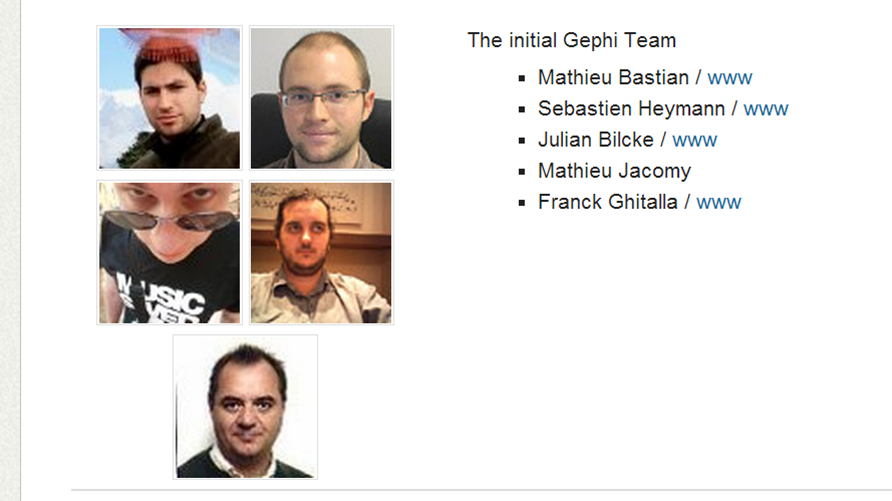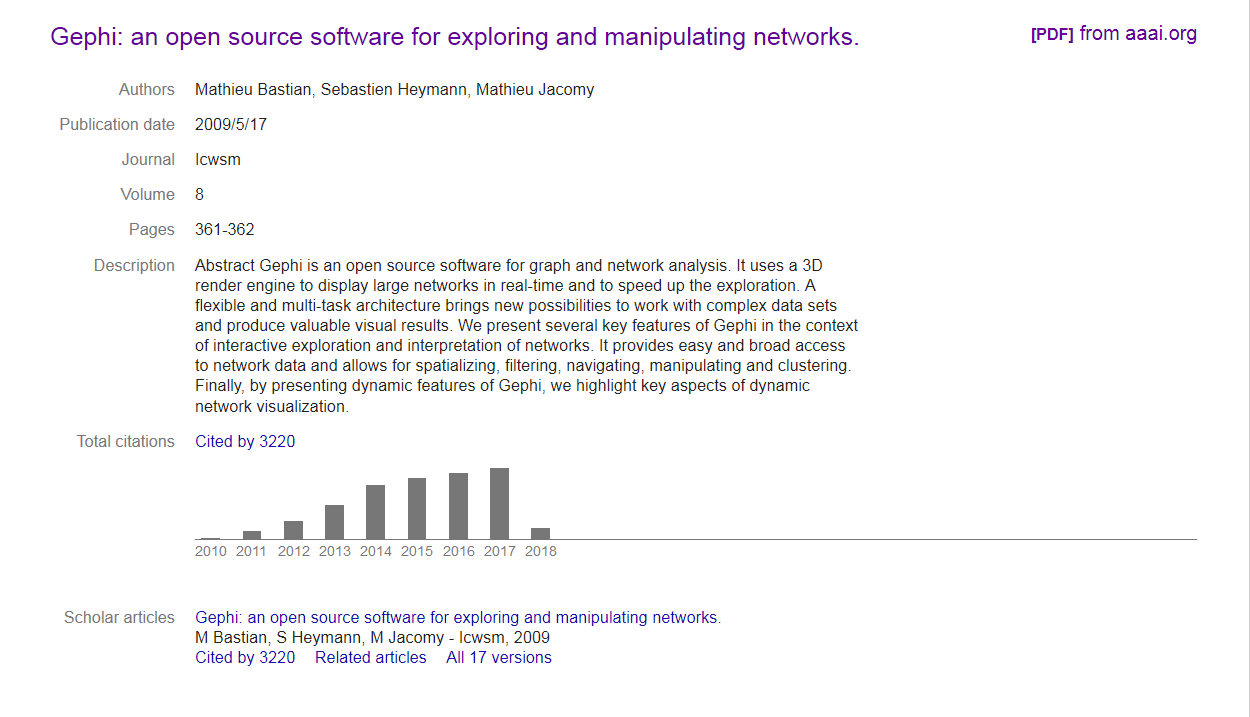History of Gephi
2017-01-11
last modified: 2023-04-10

== !
Gephi workshops
I organize online workshops and personalized trainings for Gephi, for beginners and experts. To schedule one or to get more information: analysis@exploreyourdata.com.
1. The birth of Gephi
The origin of Gephi lays in Web Atlas, a project started in 2006 involving Mathieu Jacomy, who was interested in the exploration of web-based graphs.
This was about the same time Eytan Adar was developing his GUESS software

In 2007/2008, this project morphed into Gephi, developed by a team of students at Université Technologique de Compiègne (UTC).
Mathieu Bastian became the software architect.

2. The evolution of Gephi
Gephi has evolved in several major milestones:
a. version 0.6 (2009)
the initial public release. Contains already the filter system.
b. version 0.7 (2010)
Major overhaul of the graphics interface.
Started using OpenGL framework for graphics acceleration.
A system of plugin is created.
c. version 0.8 (2011)
Introduced dynamic graphs.
Many plugins were created for Gephi, and the software started becoming much popular.
Mac computer users had issues installing Gephi on their computers because of a Java compatibility issue.
d. version 0.9 (December 2015):
A graph engine optimized for memory is introduced: Gephi can handle much larger graphs.
The codebase for the project is "mavenized", making the code more modular and easier to maintain.
Compatibility issues with Mac OS are solved.
e. version 0.9.3 (April 2022):
The Java platform is now included when installing Gephi, no more incompatibility issues with JDK versions. See blog post.
f. version 0.10 (January 2023):
Dark mode available
Apple Silicon now supported
A number of internal improvements to pave the way for further development
In 2016, Gephi is translated in French, Spanish, Japanese, Russian, Polish, Brazilian Portuguese, Chinese, Czech and German.
Eduardo Ramos Ibáñez is the maintainer of the code.
3. A series of metrics on Gephi’s popularity over time
a. Cumulative downloads
b. General interest for Gephi and related software in the past 5 years
c. Academic citations for Gephi
(counting only citations to Bastian et al., 2009)

to go further
Visit the Gephi group on Facebook to get help,
or visit the website for more tutorials
Give a try to nocodefunctions.com, the web application I develop to create networks for Gephi. Click-and-point, free, no registration needed.